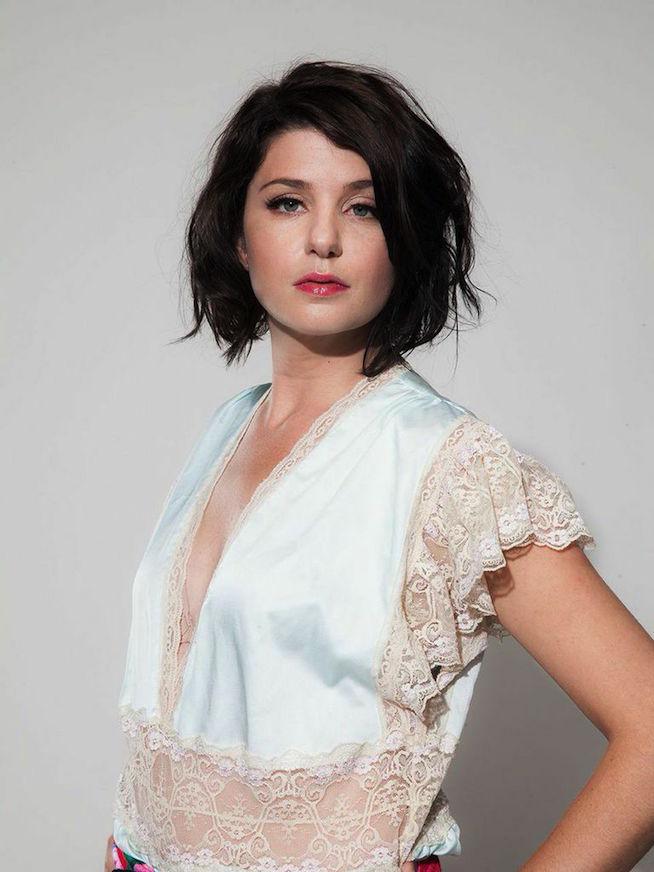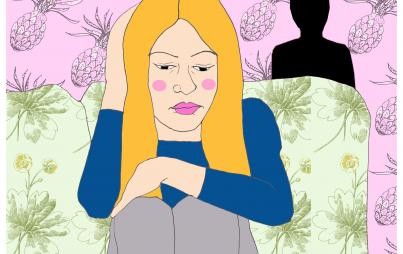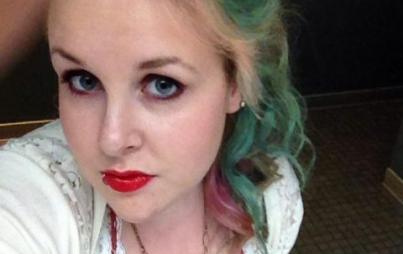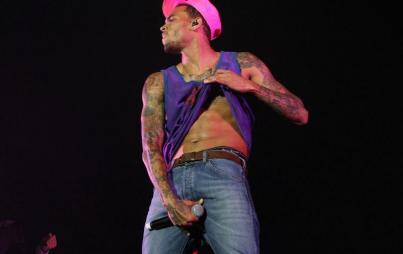
Statistically, if you are talented, two or three things will work out for you. Anything more than that is a blessing.
I first learned about Molly McAleer when she was a guest on Alison Rosen’s podcast. Listening to it at Starbucks, I couldn’t stop laughing and most definitely disturbed the other patrons. I wondered where this woman had been all of my life and then I discovered that Molly is a co-founder of Hello Giggles, along with Sophia Rossi and Zooey Deschanel.
Late last year, Hello Giggles was sold to Time, Inc for a rumored $20 million. Molly was also a writer on 2 Broke Girls. In addition to those accomplishments (seriously, this woman might actually do more than James Franco), she also hosts a podcast called Plz Advise, where she gives advice to her listeners along with her friends and celebrity guests.
If that doesn’t sound like enough — there are only 24 hours in a day, folks — she wrote the best-titled e-book ever, The Alcoholic Bitch Who Ruined Your Life: Stories About Love, Death and Rehab.
I sat down with Molly to discuss her writing, the entertainment industry, rehab, and the less glamorous side of Hollywood.
Editor's Note: This interview was conducted in May of 2015.
How did you get into writing?
I’ve always written, my whole life. Some people paint or play guitar as a hobby; I’ve just always treated writing and the Internet like a hobby. The more and more it became apparent to me I could make a profession out of it, the more and more I wanted to do it.
After college, you moved to Los Angeles. How did you get started in the entertainment industry?
I had an internship the summer before [graduating] in publicity at New Line, so I had some contacts there. I [also] Craigslisted different job opportunities. I was an assistant for the company that made cardboard standees for movie theaters. I did that for a month and then I went to be the executive assistant for the CEO of a web company that I was already a fan of. They were one of the only sites doing pop culture and entertainment at that time.
After that, I ended up getting hired at HBO’s This Just In because my neighbor was doing web design for them. He said, “You’re really funny, you’re a writer, right?” This was back when everyone was on each other’s MySpace. He said, “I really like your stuff. You should come in and interview for the site.” I ended up being a content producer there.
I went to Defamer and met a whole new set of people. [After that], I went to freelancing full time. I did my own podcast and that’s how I met Sophia [Rossi]. Then, we got the idea for Hello Giggles. Around that same time, I started writing a feature spec script, and then I got hired on 2 Broke Girls.
Hello Giggles has generally positive upbeat content for women. How did you get the idea for the site, and how do you think that has helped sustain it among all the sites geared towards the same audience on the Internet?
That element [of positivity] was something Zooey, Sophia, and I all mutually agreed upon. Something we could offer as an alternative to a lot of the stuff that was out there. Seeing that Zooey is a public figure, it just wouldn’t make sense to have a website with negative content on it. There’s some stuff that is very honest on the site.
After deciding the tone, it was my job to establish a team of writers. So, I went to people I knew were creating original content and had the same category of attitude that I was looking for. But across that spectrum, all different types of girls.
We wanted to offer something different and make it a safe space not only for people to share their work, but [also to] be in a commenting community where you’re not going to get called a “fat bitch” because you don’t like a movie or post. We wanted to keep that stuff out of there.
Why did you decide to write a book?
Thought Catalog approached me because I had been working with them since they started. The book is also about figuring stuff out in your 20s. It’s about growing into your 30s and having an opportunity to see something from the other side.
It is [also] about going through a very intense experience where, after the death of my father, I decided to start learning about substance abuse. In an effort to people-please my therapist, I wound up going [to] rehab for a week. I used the money that Thought Catalog gave me for the advance to pay for part of it.
It was a disaster. I learned a lot about myself, recovery, and what problems I do and don’t have. I found it to be both a very underwhelming and overwhelming experience.
What was the most important thing you learned about yourself in rehab?
That I need to continue to trust my gut. That’s basically it.
I was really fucked with in there. I could have been brainwashed. They tried to.
As a woman, do you feel you don’t trust yourself enough?
I think as an adult child of an addict, I don’t trust my gut because I am a people-pleaser by nature.
I don’t know if it’s more challenging for me because of my gender, but I do know the root cause for me seems to be that I grew up feeling like I needed to people-please. As a result of that, I’m easily swayed. I want to make everything okay.
What else would you like to do in the future?
I want to direct documentaries and I have a lot of ideas. I’ve done TV, I’ve done an e-book, I’ve done freelance Internet stuff, I’ve been on camera, TV, all sorts of things. I’ve run the gamut, and at this point, [I've done all] those things in repetition.
Considering you are an advice columnist, do you have any advice for people who want to be writers, etc?
You need to work every day. You need to practice your craft every day. You need to sit down and write for four hours a day, every day, even if nothing good comes of it.
If you have another job, you should try to fit in four hours of writing a day. If you can do two, that’s awesome. If you do one, that’s fine — but if you’re not working every day towards building up a skill, then you’re cheapening yourself. You’re just not giving yourself a full shot.
The other thing is to form relationships with people. It’s really important. On one of our podcasts, Ebong Eka — a motivational speaker who was on Real Housewives of DC — said, “When you want to be part of someone’s world, you should come from a place of servitude. Instead of [saying], ‘What can this person do for me?’ you should ask yourself what you can do for this person.”
That is what I’ve had to do. If there were people I’ve wanted to be involved with, there’s a next level I want to get to.
The question I’ve been asking myself is, “What can I do to prove to this person I’m worthy?” Or how can I catch their interest, make them want to make me part of their team?
What are some challenges you’ve had to overcome to get where you are?
I lived in a Koreatown studio apartment and I had bedbugs. I had to throw away everything I owned, including my bed, and I had to sleep on a hard wood floor for six months with my chihuahua.
There were a lot of months I couldn’t pay my bills. It was very difficult to date when I was [writing on 2 Broke Girls]. I didn’t get to go out at all, because I was working in a writers room all the time, and I would have 12 hours to myself a week, so I usually filled that time with getting my hair and nails done — self-preservation.
In the book, I talk about how at time I’ve drunk more than I meant to because I wanted to tune out the chaos and overwhelming feelings of anxiety. I was unhappy or putting myself in unhealthy situations.
Statistically, if you are talented, two or three things will work out for you. Anything more than that is a blessing. So, being told “no” hasn’t murdered my spirit yet.
Image: Robyn Von Swank








